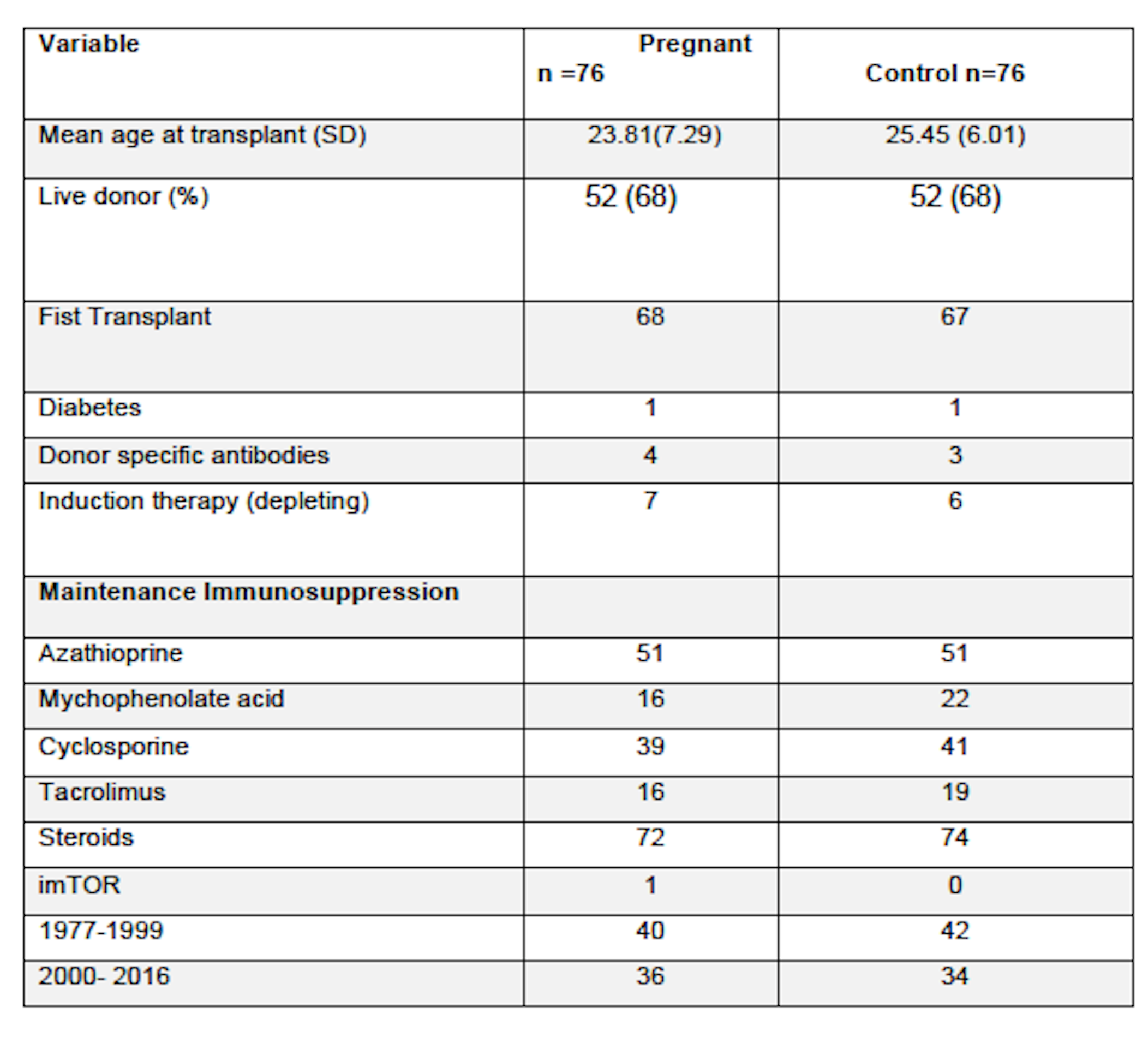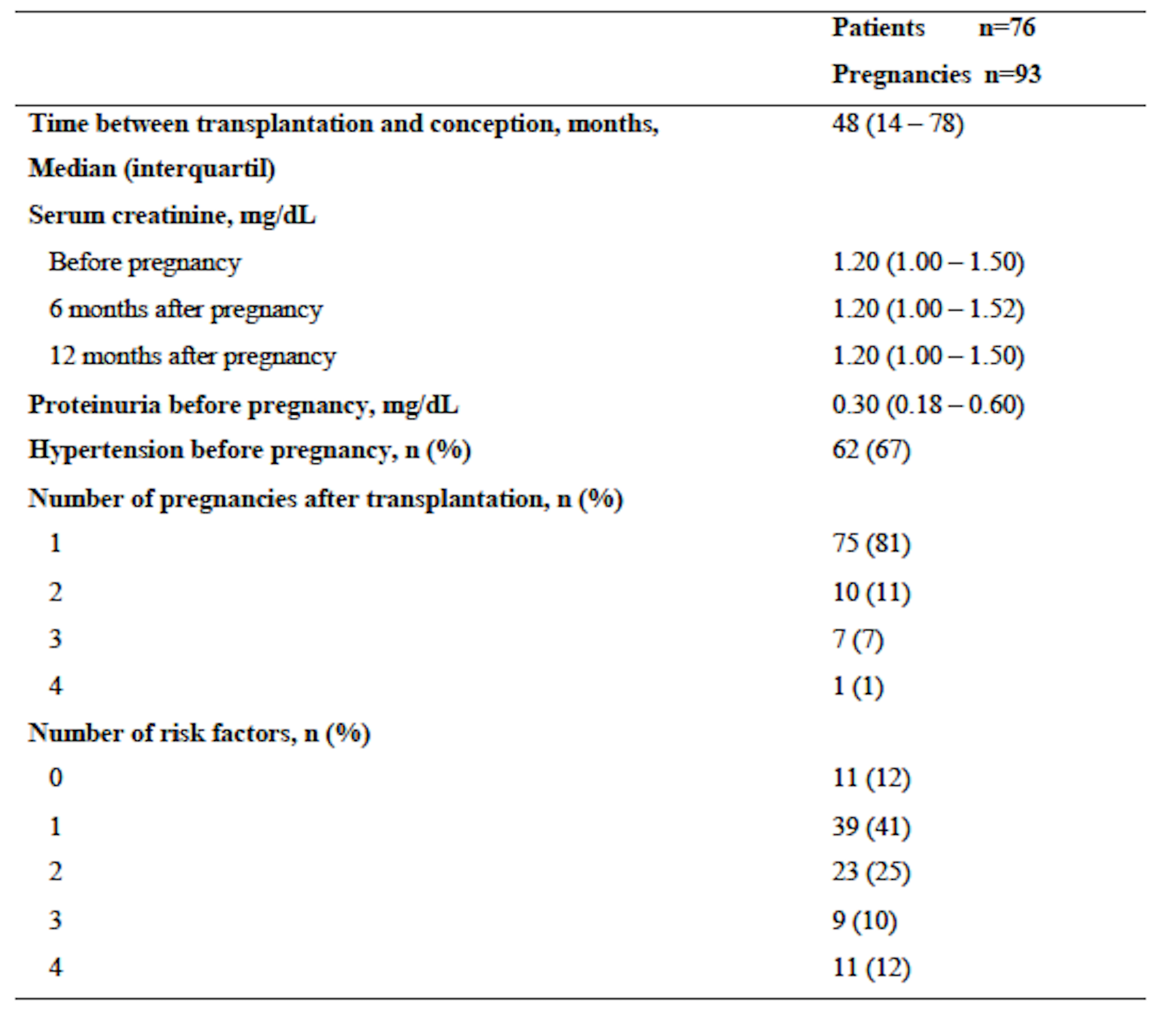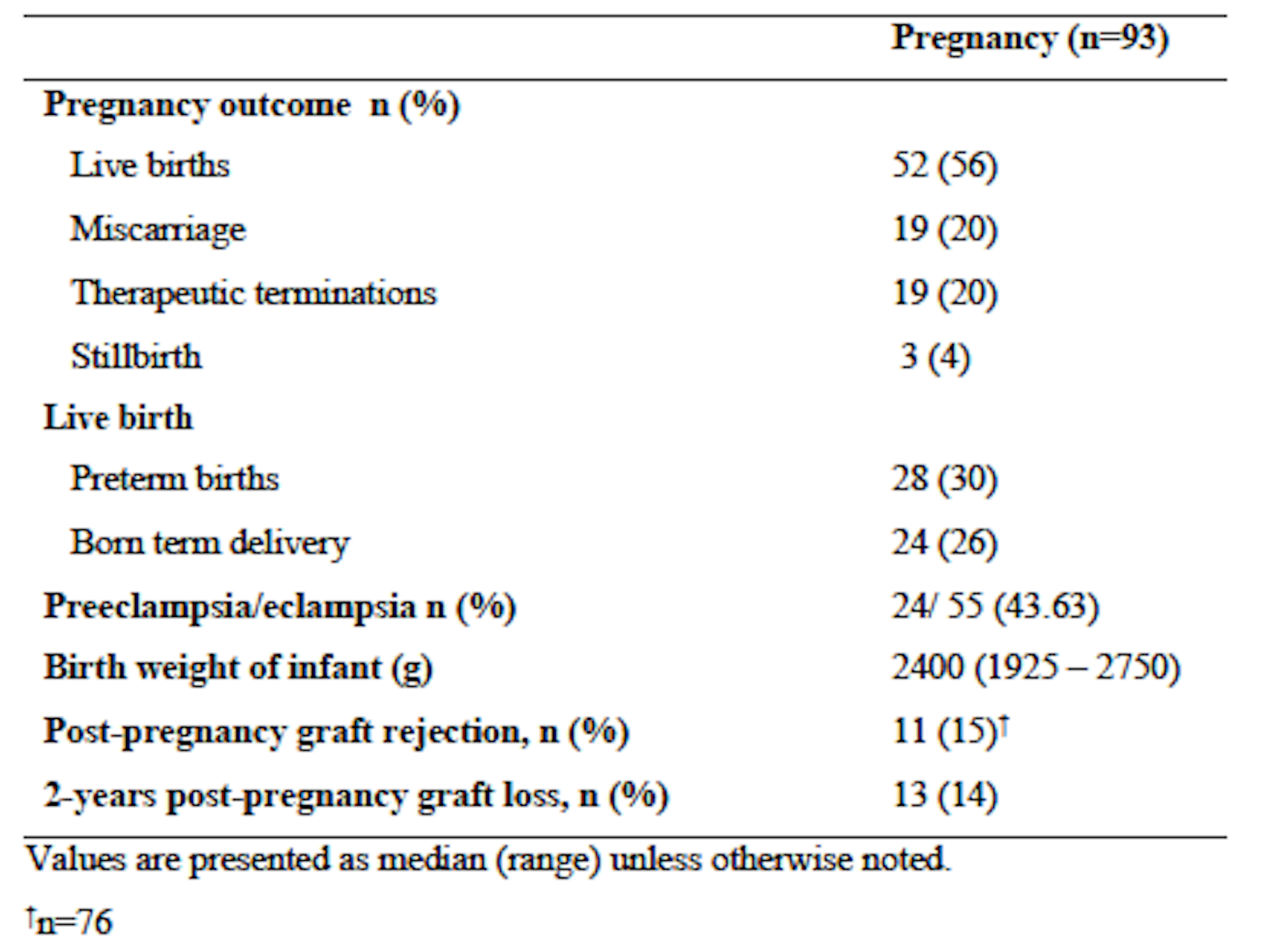Pregnancy in renal transplant recipients: long term outcomes
Eloisa Radaelli1,2, Gisele Meinerz1,2, Lazaro Jacobina1,2, Rosana Bruno1,2, Valter Garcia1,2, Elizete Keitel1,2.
1Nephrology and Kidney and Pancreas Transplant Department, ISCMPA, Porto Alegre, Brazil; 2UFCSPA, Porto Alegre, Brazil
Introduction: Kidney transplantation is considered the method of choice in the treatment of end-stage chronic kidney disease. It improves patient survival and quality of life, including the recovery of fertility amongst women, possibilitating pregnancy.
Aim of study: Describe a single center experience with pregnancy after transplantation on its epidemiology, its frequency in women in their reproductive years, outcomes for the mother and newborn, and compare patient and graft survival with a matched control group of women who did not get pregnant during the study period.
Materials and Methods: Retrospective case-control study, developed at the Kidney Transplant Service of Santa Casa de Misericórdia in Porto Alegre, among the 1253 female patients who, after transplantation, were of childbearing age in the period 1977 to 2016, followed up until the end of 2020. These were compared to a control group matched for age, type of donor, date of transplant and immunological risk.
Results: A total of 76 (6.1%) of the patients were pregnant, totaling 93 pregnancies. Compared to the control group, at 10 years after transplantation there was no significant difference in relation to graft loss (74% vs 66%, p=0.524) but the survival of pregnant patients was higher (97% vs 79%, p= 0.018). We observed that a total of 40% of pregnancies progressed to abortion. In 30% the delivery was preterm and 26% were born at term. Three pregnancies progressed to stillbirth. Of the 56 pregnancies that evolved, 23 (41%) had preeclampsia and one eclampsia.
Conclusion: 6.1% of women of childbearing age became pregnant during the studied period, 56% of pregnancies were successful. Compared to the control group, pregnant women had similar graft survival and longer patient survival.




right-click to download
